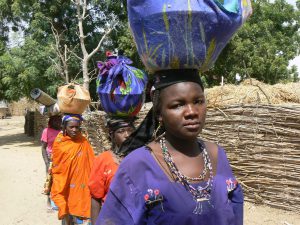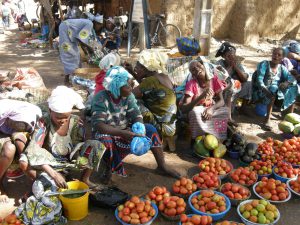by Kristopher Coulston
Access to clean water is not only essential for life, it is also essential for a thriving economy. When a nation’s citizens do not have ready access to clean water, every aspect of the country is negatively impacted, especially the economy. Women and girls are the citizens who are most affected by the lack of access to clean water. Thanks to generations of rigidly defined gender roles, women and girls are responsible for gathering water in addition to their other daily domestic duties. The burden of searching for and collecting water holds them back from pursuing an education, finding income-generating work, and taking leadership roles in their communities. Ultimately, the lack of access to clean water coupled with gender disparity disempowers women, which slows economic and political progress.

Empowering the women of Niger is crucial for economic development and long-term growth. While work is being done to achieve gender parity and eradicate discriminatory practices, progress is slow. Empowering women is central to enabling Niger to reach its full potential. For the country to experience strong economic progress, it must make full use of the talents and abilities of all its citizens, especially those of women. Eradicating gender disparity and empowering women would substantially increase its productive power. This increase in productivity would have a positive economic impact.
The best way to empower women is through education; and the key to ensuring that all women in Niger receive an education is eliminating gender disparity. In Niger, the majority of those who are lucky enough to receive an education beyond the primary level are male. From 2005-2012, only 2.5% of women aged 25 years or older had some secondary education. When women do not receive an education, they are more likely to stay at home, tending to domestic duties or take jobs in lower-paying fields, such as clerical and housekeeping. When women are forced to take these types of jobs, their skills and abilities are under utilized, and the Nigerien economy suffers as a result.
While some progress has been made to close the gender gap in Niger, women still face a range of barriers, from gender-restrictive cultural practices to discriminatory laws and a labor market that does not recognize the skills and abilities of women. Gender disparity confines women to the home, leaving them without adequate representation in the economic and political spheres. The lack of female representation in the economy and the government will only exacerbate gender inequality and slow economic progress. When women are empowered, everyone benefits
Until women are empowered to fully engage in society and contribute to the economy, their decision making power will be limited. It is crucial that women’s skills and abilities are put to full use. On the continent of Africa, growth rose by 6% in 2015, yet the United Nations Development Programme (UNDP) has reported a 61% loss in development because of gender disparity. These numbers show how important women are to any economy, especially Niger’s economy.

A thriving economy is only possible when everyone is invited to participate. When women are denied an education and an opportunity to contribute economically, the entire nation suffers. Women are the untapped life force for growth and progress in Niger, both in the economic and political arenas. They should not be limited to household duties like searching for and collecting water or to low-paying jobs. The women of Niger must be fully empowered to contribute to the economy and to have a voice in their homes and communities.
Read more about empowerment through water here!


